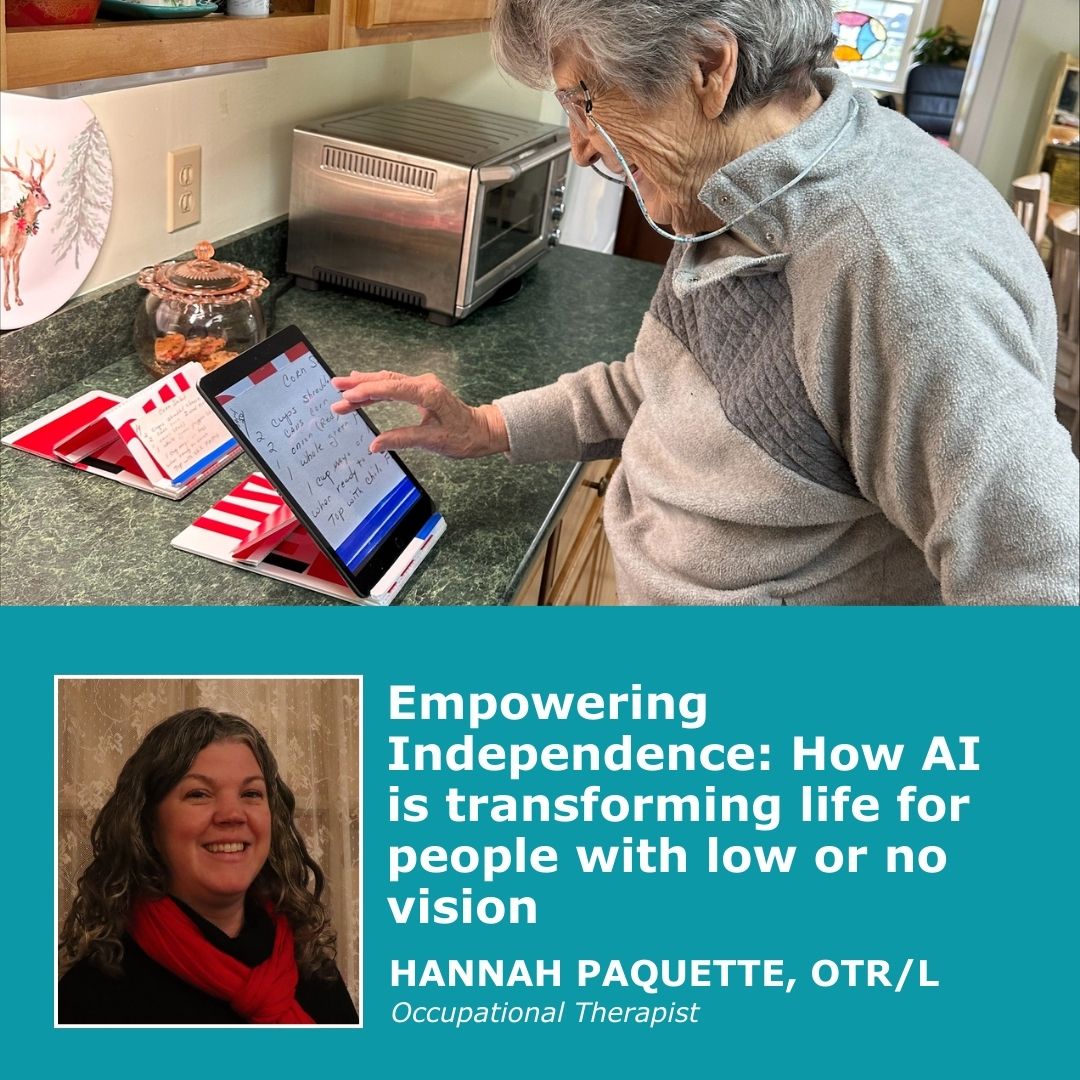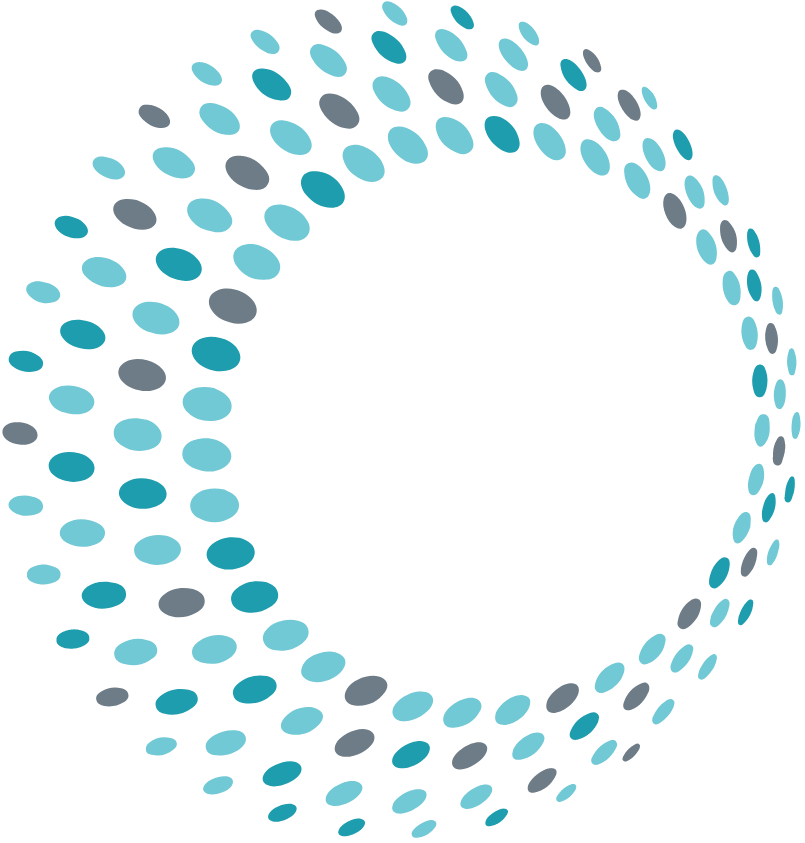
In a world that’s moving fast toward digital solutions, it’s easy to feel left behind—especially if you’re living with low or no vision. But there’s good news: technology isn’t just catching up; it’s opening doors. In recognition of Global Accessibility Awareness Day (May 15th), Occupational Therapist Hannah Paquette, OTR/L is explaining how Artificial Intelligence (AI) is becoming a powerful ally, helping people of all ages participate more fully in everyday life. Whether it’s preparing meals, reading mail, or managing appointments, AI tools are making these tasks more accessible than ever.
The Power of AI: A New Set of Eyes
For someone who can’t see clearly—or at all—daily activities can become complicated, frustrating, or even risky. That’s where AI can help. From smart home technology like Alexa or personal assistant, Siri, to specialized apps like Seeing AI, Be My Eyes, and Meta, today’s AI-driven technology can:
- Read printed text aloud
- Scan products at the supermarket
- Identify objects, colors, and currency
- Describe surroundings and facial expressions
- Organize and label items with audio or tactile prompts
And these tools are becoming increasingly intuitive, learning the user’s preferences over time to provide more personalized support.
Accessible for All Ages
It’s a common myth that technology is only for the younger generations. In fact, many older adults are embracing AI tools with enthusiasm—especially when they realize how much independence it can bring.
Imagine a grandparent with macular degeneration using a voice-activated speaker to set a timer, hear their medical appointments, or ask what time it is. Or a retired teacher rediscovering their love for books by listening to the audio version. These aren’t stories from the future—they’re happening today.
The Role of Occupational Therapy
AI is only part of the equation. Learning to use it effectively, especially when adapting to vision loss, takes time, practice, and often, some hands-on guidance. That’s where occupational therapists (OTs) come in.
Occupational therapists work with individuals to identify goals and find practical solutions that promote independence in Activities of Daily Living (ADLs) and Instrumental Activities of Daily Living (IADLs). This might include:
- Teaching someone how to use a screen reader to check emails
- Setting up reminders through smart home systems
- Provide training on accessible kitchen gadgets
- Practicing AI-enhanced organization and safety tools
By integrating AI into personalized therapy plans, OTs empower clients to re-engage in meaningful activities and routines—safely and confidently.
A Shared Vision: Empowerment Through Innovation
At Future in Sight, we believe that vision loss should never limit a person’s potential. Our team is passionate about connecting people to the tools, resources, and training they need to live full, vibrant lives.
Our Mission: To advance the independence of persons who are blind and visually impaired.
Our Vision: To create a world where every person with vision loss thrives with dignity and confidence.
Through services like adaptive and assistive technology training, occupational therapy, and community programs, we’re helping people of all ages embrace new possibilities. AI is not replacing human connection—it’s enhancing it. It’s giving people with vision loss the ability to participate, contribute, and enjoy life on their own terms.
Final Thoughts
Technology doesn’t have to be intimidating. With the right support, it can be liberating. Whether you’re exploring tools for yourself or helping a loved one adjust to vision loss, know that you’re not alone—and you don’t have to figure it out on your own.
If you’re ready to explore how AI and occupational therapy can work together to support greater independence, reach out to Future in Sight. Together, we can light the path forward.
If you or someone you love is experiencing vision loss and could benefit from our services, please contact Future In Sight at [email protected] or 603-224-4039 today!
About the Author: Hannah Paquette, OTR/L is an Occupational Therapist at Future In Sight

